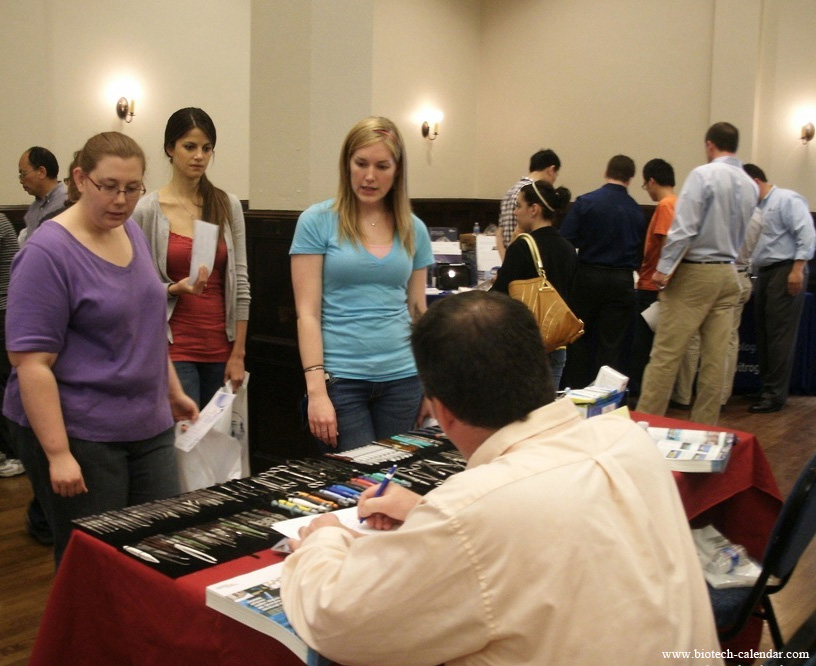Researchers at Emory University received $5.1 million in life science research funding from the NIH this past June. The title of the project receiving funding is “B-Cell Biology of Mucosal Immune Protection from SIV Challenge,” and the project leader is Eric Hunter, PhD. Dr. Hunter’s area of expertise is HIV/AIDS. According to the Emory University webpage, his research focuses on understanding virus-cell interactions, how independently targeted capsid and glycoprotein molecules are brought to the assembly site, what pathways are used, and what roles cell- and virus- encoded gene products assume while this is going on. The NIH RePORTER provides more information on the project receiving $5.1 million in life science funding:
Recent Posts
A great deal of life science funding was awarded to Duke University on June 14th, 2013 when the NIH gave researchers $13.8 million to study the induction of protective B-cell responses to HIV-1. The study’s project leader, Barton Haynes, is Director of the Human Vaccine Institute in the Department of Medicine. According to the Duke University website, Dr. Haynes’s laboratory is interested in researching host innate and adaptive immune responses to the human immunodeficiency virus (HIV), tuberculosis (TB), and influenza so that they can understand better ways to make preventive vaccines against these three infectious diseases. The NIH RePORTER goes into more detail about the project receiving $13.8 million in NIH life science research funding:
Tags: 2013, Duke University, North Carolina, Life Science Funding, Duke
Tags: UOr, 5-Star Winners, 5-Star Program, OHSU, Northwest Region, ORSTU, Northwest marketing events
Researchers at Harvard University were recently awarded $2.1 million by the NIH for a project titled “Dissecting the Establishment and Regulation of Human Pluripotency.” The NIH RePORTER describes in detail the specifics of the project in the project’s abstract, written by the Harvard researchers:
Tags: Harvard University, 2013, Massachusetts, Harvard, NIH funding
Researchers at Harvard University received a $9.8 million grant from the NIH this year for the New England Regional Center of Excellence in Biodefense and Emerging Infectious Diseases Research. The project leader is listed as Dr. Dennis Kasper. According to the Harvard University website, Dr. Kasper and his research team are interested in the interactions of microbes, including commensals and pathogens, with the immune system. The NIH RePORTER goes into further detail about the organization receiving NIH funding:
Tags: Harvard University, 2013, Longwood Medical Campus, Massachusetts, Harvard
The University of Pittsburgh will soon begin construction on a new $1 million laboratory at the Pymatuning Laboratory of Ecology. The new laboratory is expected to attract researchers from around the globe. The 3,600-square-foot facility will be funded by the NSF, and in addition to being used by some of the world’s top researchers will be a base of outreach to elementary, middle and high school teachers in the region.
Tags: 2013, University of Pittsburgh, Pennsylvania, new laboratory, UPITT
The University of Pennsylvania received a $7.2 million NIH grant for its Abramson Cancer Center this year. The project abstract was submitted by Dr. Chi Dang, the director of the center. On the University of Pennsylvania website, Dr. Chi Dang says that the future of cancer care at the Abramson Cancer Center rests with the creation of Translational Centers of Excellence that focus on closely connected disease-specific care teams. The NIH RePORTER goes into more detail on the history of the Abramson Cancer Center:
Tags: 2013, Pennsylvania, University of Pennsylvania, UPenn, NSF funding
“In 2007, the University of Alabama at Birmingham (DAB) and its affiliates completed three important, large- scale strategic planning efforts. Together, these processes generated a ‘blueprint for our research future’ that lays the foundation to transform our substantial clinical and translational research enterprise through integration and innovation across all disciplines, schools, and our health care system,” says the University of Alabama’s abstract for its Center for Clinical and Translational Science on the NIH RePORTER. The Center for Clinical and Translational Science received a $5.1 million award last year.
Tags: 2013, Alabama, University of Alabama, UAlab, NIH funding, NIH grant
Biotechnology Calendar, Inc. selects a winner of our Five Star Program at the end of every event we organize who we believe demonstrated superb marketing and salesmanship skills in working to sell lab equipment and life science products. Our Five Star Winners bring large crowds to their booth and do an excellent job communicating their product’s message, all while staying until the very end of the show. Five Star Winners communicate well with attendees, create and attractive display, conduct interesting demonstrations and keep a professional demeanor throughout the shows.
Tags: Longwood Medical, Northeast life science marketing events, Northeast, UPenn, UPITT, Southwest, 5-Star Winners, 5-Star Program, MSSM, RockU, Harvard, ThomJeff
Researchers at Stony Brook University, led by Samuel Stanley, applied for NIH funding to build an animal biosafety level three laboratory and received $14.2 million this year. Stony Brook University is one of the leading research universities in the country. According to the Stony Brook website, the university employs over 1000 researchers working on 1600 active sponsored projects. Stony Brook aims to collaborate in research partnerships that bring about new knowledge in all fields of research and scholarly activity The NIH RePORTER has details on some of the project information for the new laboratory receiving NIH funding:
Tags: 2013, New York, Stony Brook University, NIH funding, SunySB

















